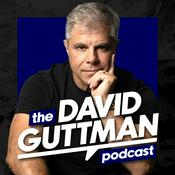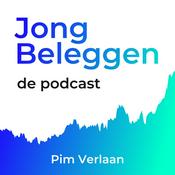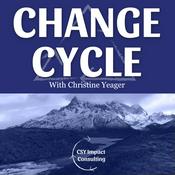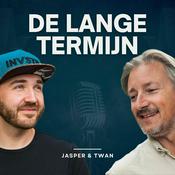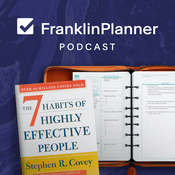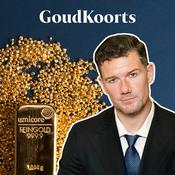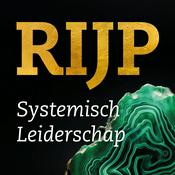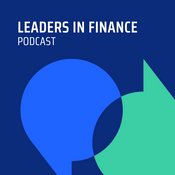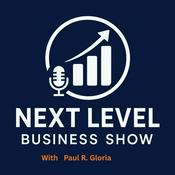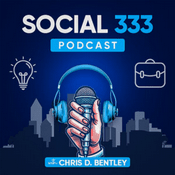The Circular Future - Advancing Business Circularity
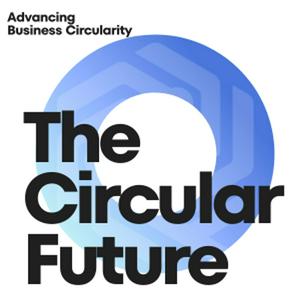
57 afleveringen

The Circular Economy: Year in Review
18-12-2025 | 14 Min.
Send us a textIn this episode, Stephanie McLarty reflects on the major themes of the circular economy in 2025, highlighting the challenges and breakthroughs in e-waste management, circular value creation, the Right to Repair movement, collaboration, digital product passports, compliance with new regulations, and the need for a fundamental rethinking of business practices to embrace circular principles. Takeaways 2025 has seen significant shifts in the circular economy. Circular value creation maximizes resource value throughout a product's life cycle. Collaboration is essential for circular transformation. Collaboration is essential for circular transformation. Thanks for tuning in to The Circular Future. If you enjoyed this episode, please leave us a review on our Podcasts, or wherever you listen. Interested in joining us as a guest? Reach out to Sanjay Trivedi at [email protected] Thanks for tuning in to The Circular Future. If you enjoyed this episode, please leave us a review on Spotify or Apple Podcasts, or wherever you listen. Interested in joining us as a guest? Reach out to Sanjay Trivedi at [email protected]. Listen to more episodes at https://quantumlifecycle.com/podcast, and stay connected with us on LinkedIn.

55. Turning Old Tech into New Impact
04-12-2025 | 24 Min.
Send us a textWhat if your junk drawer is quietly holding cash, critical minerals, and a few nagging data risks? We sit down with Stephanie McLarty, Head of Sustainability at Quantum Lifecycle Partners, to map a simple, secure path from clutter to circularity. From reducing impulse upgrades to choosing certified recycling, this conversation turns good intentions into easy wins you can apply today. We dig into the environmental stakes—toxins in landfills, lithium-linked fire risks, and the high emissions cost of new manufacturing—and show how reuse and responsible recycling conserve resources while supporting digital equity. Stephanie explains why only 22% of electronics get formally recycled, how “electronic hibernation” traps value in closets, and which habits actually cut your bill: shutting laptops down, flipping power bars off, and stretching refresh cycles. For anyone nervous about privacy, she breaks down DIY wiping versus certified data sanitization, the R2v3 standard, and what to expect from trusted providers so your information stays yours. If budget matters, you’ll learn how refurbished devices deliver like-new performance at 30–70% less, what warranties and certifications to look for, and when it makes sense to repair instead of replace. We wrap with a practical toolkit: inventory your tech, flag data-bearing devices, use verified dropoffs, and set a clear cutoff for “just-in-case” backups. Small moves add up fast when they’re convenient, safe, and aligned with how nature works—no waste, just value in the right place. If this helped you take one step toward a cleaner tech life, follow the show, share it with a friend who hoards cables, and leave a quick review to tell us which device you’re retiring first. Thanks for tuning in to The Circular Future. If you enjoyed this episode, please leave us a review on Spotify or Apple Podcasts, or wherever you listen. Interested in joining us as a guest? Reach out to Sanjay Trivedi at [email protected]. Listen to more episodes at https://quantumlifecycle.com/podcast, and stay connected with us on LinkedIn.

54. Stories of Circular Business Transformation
24-11-2025 | 33 Min.
Send us a textWe explore how circular thinking creates real business value, from lower costs and resilient supply chains to new product lines and revenue. Andrew Telfer shares practical case studies and simple steps any company can take to move from linear to circular.• industrial symbiosis turning outputs into inputs• upcycling examples from juice pulp to ginger beer• traditional manufacturing reusing offcuts for new lines• circularity linked to climate action and net zero• reduce, reuse, recycle as an operational playbook• frontline insights to locate and fix waste• shorter supply chains improving resilience• product-as-a-service and subscription tools• collaboration across sectors to unlock valueThanks for tuning in to The Circular Future. If you enjoyed this episode, please leave us a review on Spotify or Apple Podcasts, or wherever you listen. Interested in joining us as a guest? Reach out to Sanjay Trivedi at [email protected]. Listen to more episodes at https://quantumlifecycle.com/podcast, and stay connected with us on LinkedIn.

53. Season 3: Circularity in Action
07-11-2025 | 8 Min.
Send us a textThe conversation you’ve been asking for is finally here: fewer slogans, more results. We’re kicking off season three by sharpening our promise—spotlighting real stories of business circularity that cut waste, save money, and build resilient operations across North America.We trace how listener questions evolved from “What are carbon credits?” to “How did they actually do that?” and explain why the centre of gravity has moved from ESG buzz to measurable circular outcomes. Along the way, we unpack the role AI now plays in the loop—forecasting returns, improving grading, streamlining reverse logistics—and where human know‑how still drives the toughest wins. You’ll hear how brands navigated reuse at scale, launched packaging innovations, and partnered with vendors to extend product life without sacrificing quality or compliance.This season brings clearer structure and higher utility: two episodes per month in an eight‑month run, tighter segments for easier listening, and case studies that answer three practical questions—what was achieved, how it happened, and what you can copy tomorrow. We’re expanding our scope beyond Canada to reflect a North American audience and the cross‑border realities of electronics lifecycle management, recycling infrastructure, and policy. If your team has a circular success—from take‑back to refurbishment to materials recovery—we want to surface it so others can learn and build on it.Join us as we advance business circularity with stories that travel and tactics that pay off. Subscribe, share with a colleague who owns sustainability or operations, and leave a review to help more practitioners find these lessons. Have a circular win to feature? Pitch it at quantumlifecycle.com/podcast.Thanks for tuning in to The Circular Future. If you enjoyed this episode, please leave us a review on Spotify or Apple Podcasts, or wherever you listen. Interested in joining us as a guest? Reach out to Sanjay Trivedi at [email protected]. Listen to more episodes at https://quantumlifecycle.com/podcast, and stay connected with us on LinkedIn.

52. The role of AI in Sustainable Transport
19-6-2025 | 39 Min.
Send us a textIn this episode, Stephanie McLarty speaks with Rich Savoie, CEO of Adiona Tech, about the importance of sustainable logistics and the role of AI in optimizing transport emissions. They discuss a circular pilot project in Australia focused on recycling champagne corks and the challenges faced in the logistics of recycling. Rich shares insights on the significance of commercial transport emissions, the lessons learned from the pilot, and how AI can help improve supply chain efficiency. The conversation emphasizes the need for businesses to engage CFOs in sustainability initiatives and the urgency of taking action towards greener logistics.TakeawaysTransport emissions are often overlooked but critical to address.Commercial transport contributes significantly to greenhouse gas emissions.Setting clear KPIs is essential for measuring success in sustainability projects.AI can optimize logistics and address driver shortages.Engaging CFOs is crucial for the success of sustainability initiatives.Understanding the entire value chain is key to effective circular projects.Thanks for tuning in to The Circular Future. If you enjoyed this episode, please leave us a review on Spotify or Apple Podcasts, or wherever you listen. Interested in joining us as a guest? Reach out to Sanjay Trivedi at [email protected]. Listen to more episodes at https://quantumlifecycle.com/podcast, and stay connected with us on LinkedIn.
Meer Zaken en persoonlijke financiën podcasts
Trending Zaken en persoonlijke financiën -podcasts
Over The Circular Future - Advancing Business Circularity
Luister naar The Circular Future - Advancing Business Circularity, Leergeld en vele andere podcasts van over de hele wereld met de radio.net-app

Ontvang de gratis radio.net app
- Zenders en podcasts om te bookmarken
- Streamen via Wi-Fi of Bluetooth
- Ondersteunt Carplay & Android Auto
- Veel andere app-functies
Ontvang de gratis radio.net app
- Zenders en podcasts om te bookmarken
- Streamen via Wi-Fi of Bluetooth
- Ondersteunt Carplay & Android Auto
- Veel andere app-functies


The Circular Future - Advancing Business Circularity
download de app,
luisteren.

